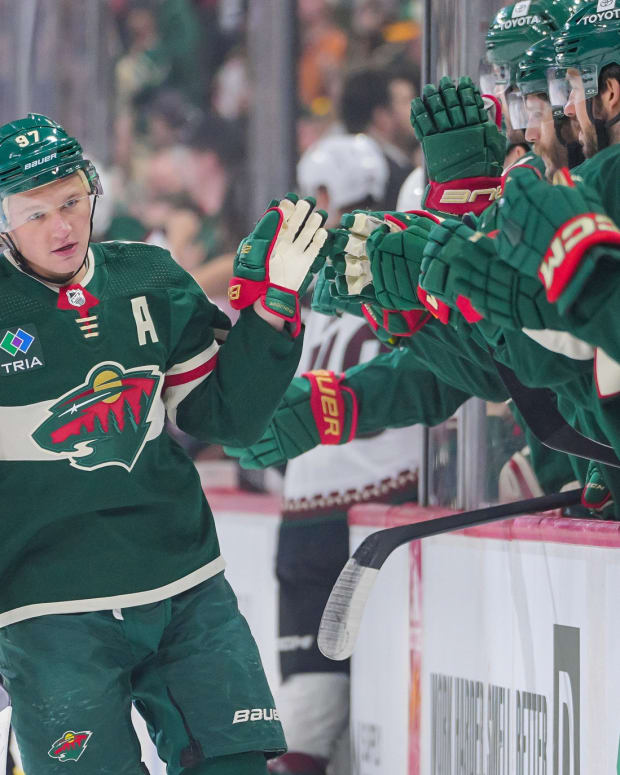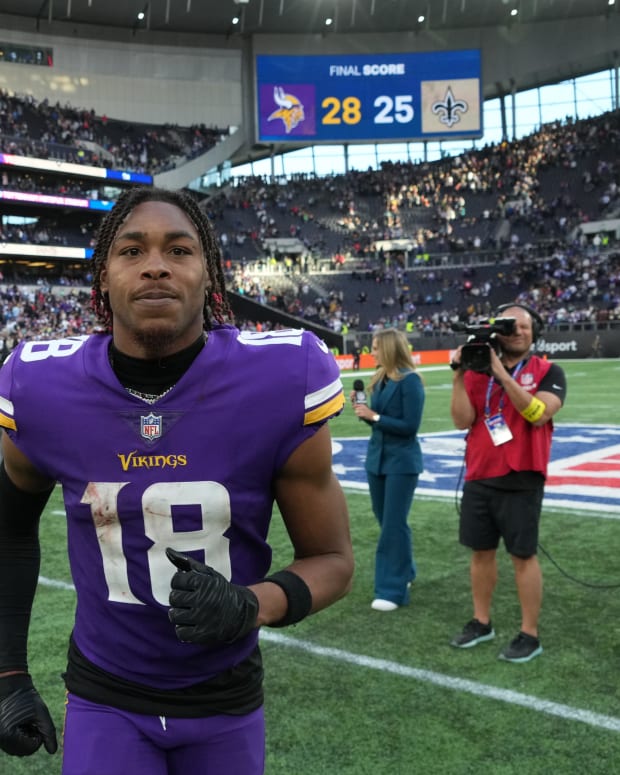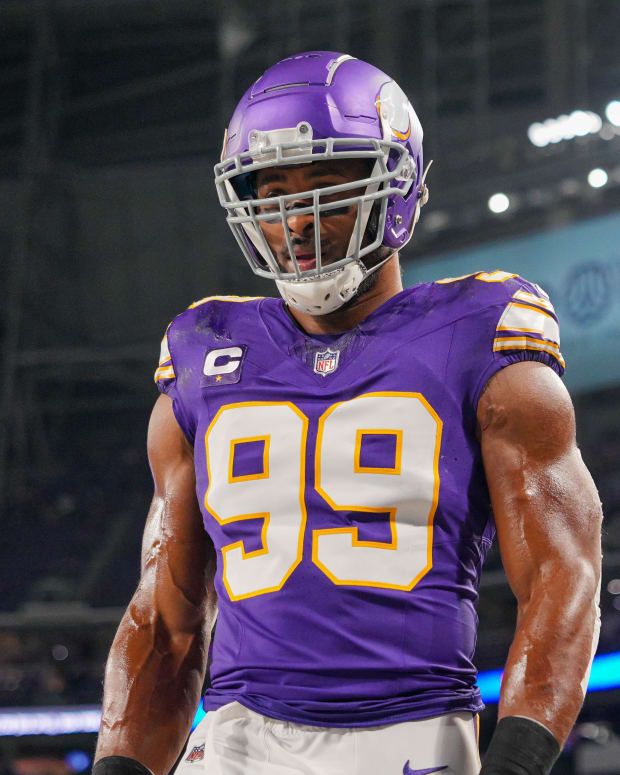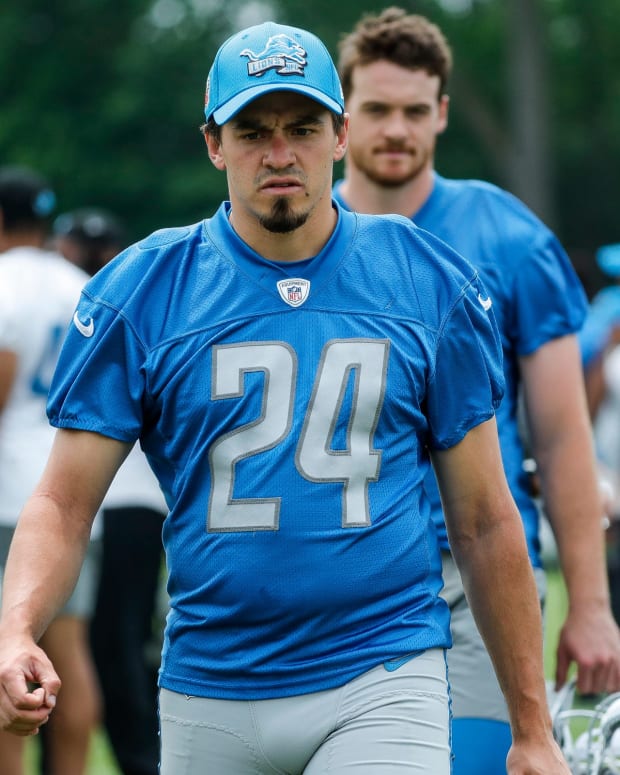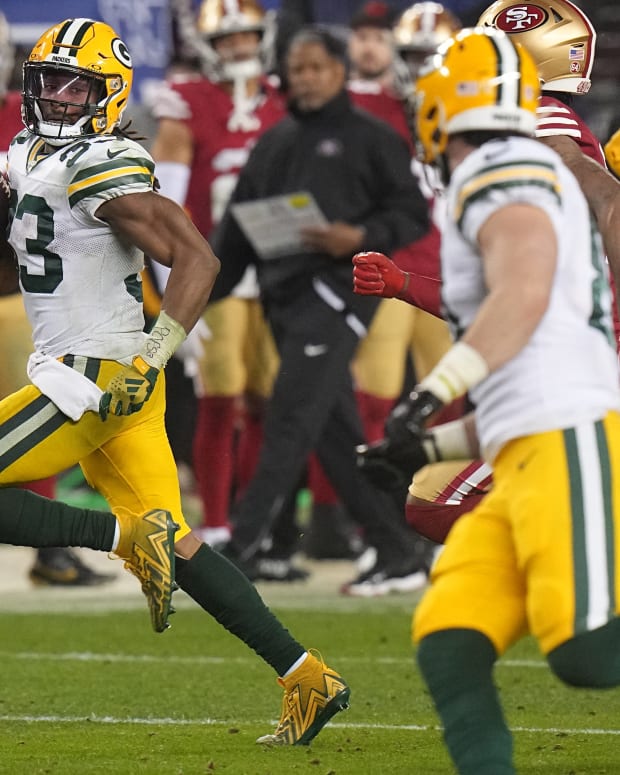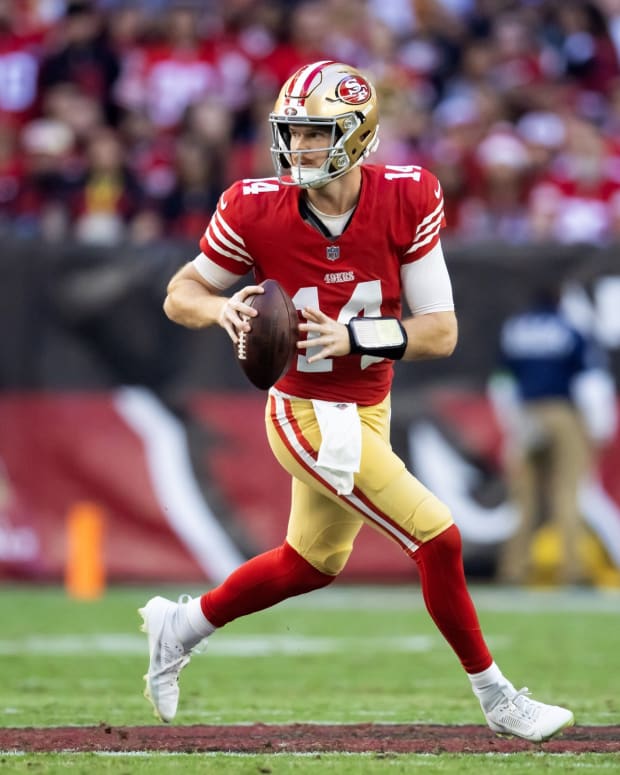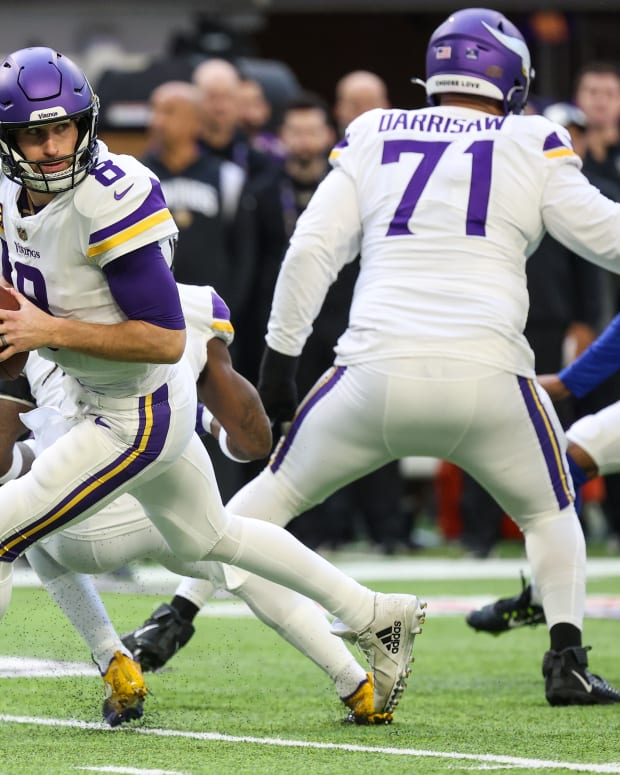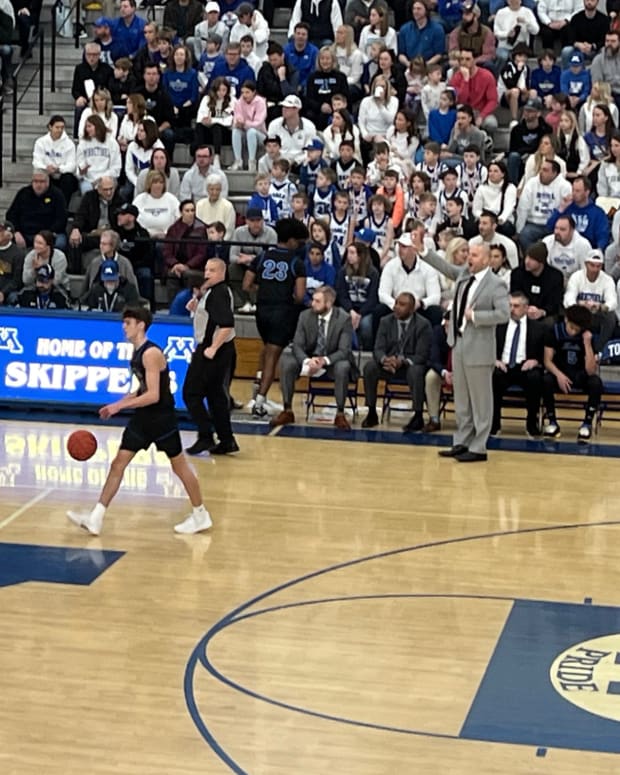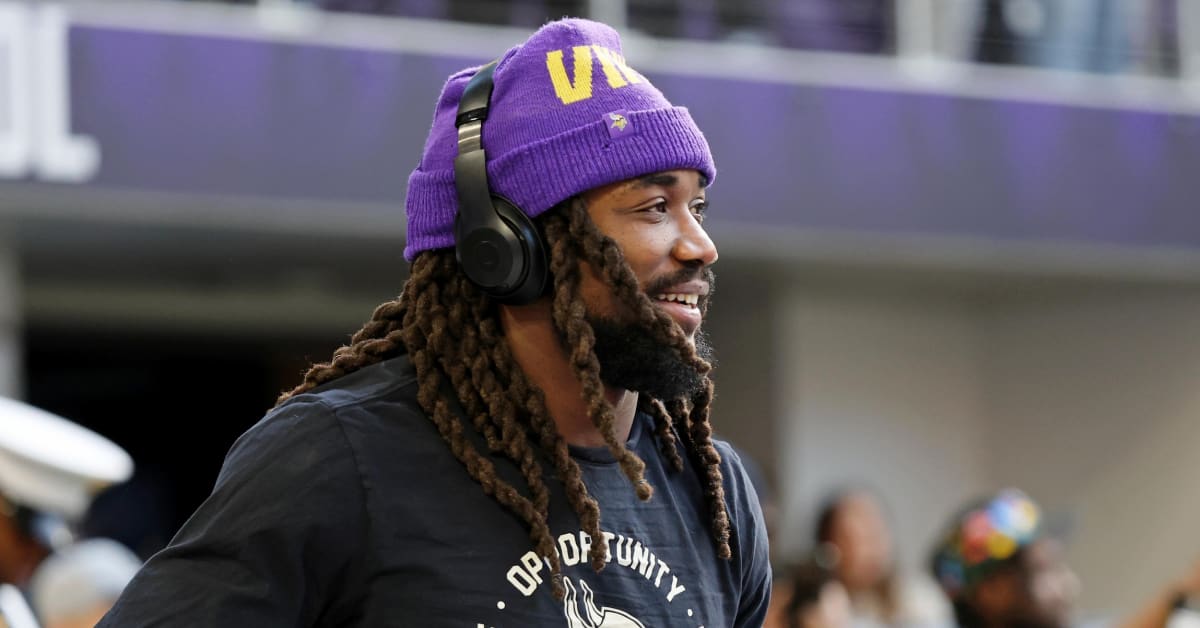
Running backs in this year's Super Bowl are why the Vikings can cut Dalvin Cook
It's a harsh headline but the NFL is a business and the Minnesota Vikings need to make a business decision with running back Dalvin Cook. There's no question that Cook is one of the most talented and dynamic running backs in the NFL, but high-paid running backs are rarely associated with teams that reach the Super Bowl.
The cold, hard truth is that running backs with expensive contracts are rarely good for the overall health of an NFL roster. Cook's $11.8 million cap hit was the second-largest among running backs in 2022, and it accounted for 5.7% of Minnesota's salary cap.
The biggest cap hit for a running back this season was Ezekiel Elliott at $18.2 million, according to OverTheCap (OTC). He ate 8.3% of the Cowboys' cap and wasn't anywhere close to being as productive as Tony Pollard, who made less than a million dollars.
Both teams in the Super Bowl, Philadelphia and Kansas City, got there without doling out big contracts to RBs.
Miles Sanders is in the last year of his rookie deal and accounts for just 0.8% of the Eagles' 2022 salary cap. Seventh-round rookie Isiah Pacheco and veteran Jerick McKinnon are leading the Chiefs' backfield. Pacheco's $700,000 salary this season is 0.3% of the salary cap, and McKinnon is on a one-year deal for $1 million, or 0.5% of the cap.
The Rams got to the Super Bowl last year with Sony Michel making $1.7 million (1% of the cap). They also had Cam Akers and Darrell Henderson Jr. on rookie deals that, when combined, only accounted for 1.4% of the cap.
Joe Mixon had an $8.4 million cap hit last season and got to the Super Bowl with the Bengals. A running back like Mixon munching 4.3% of the cap is less painful because Joe Burrow is still on his rookie deal.
The point is obvious: highly-paid running backs are typically bad news for a team hoping to put together a balanced and competitive roster unless the quarterback is a superstar on a rookie contract. But eventually, the bite of a big running back contract will be felt.
Cook is due to carry a $14.1 million cap hit next season, which is an estimated 6.7% of Minnesota's salary cap in 2023. Why pay that kind of money when the team is projected to be $24.5 million over the cap?
The Bucs won the Super Bowl in 2020-21 with Leonard Fournette at running back. That's a big name, but his contract was less than 2% of Tampa Bay's cap that season.
The 2019-20 Super Bowl between the Chiefs and 49ers featured Damien Williams and Raheem Mostert leading their respective teams in rushing. Both were less than 1% of their team's salary cap.
If the Vikings cut or trade Cook before June 1, they’d save roughly $8 million against the cap. If they wait until after June 1, they’d save about $11 million. It seems like a no-brainer, so long as the Vikings believe Kene Nwangwu and Ty Chandler can shoulder the load in 2023.
As Matthew Coller pointed out in his "Future of the Vikings" series, cutting Cook would free up money and they could try to bring Alexander Mattison back on a short-term deal if they don't think Nwangwu and Chandler are good enough to step in next season.
Things could change, but right now there appear to be more reasons to cut Cook than there are to bring him back.
